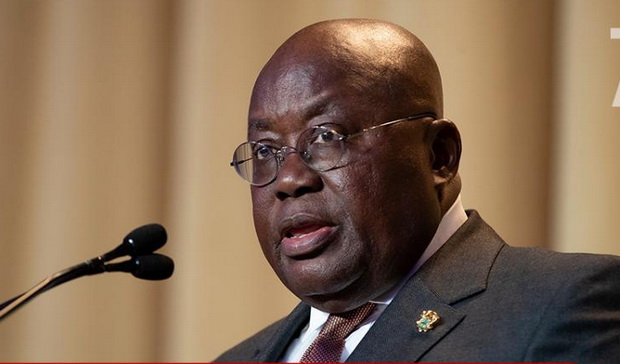
The following is what President Nana Addo Dankwa Akufo-Addo said about the state of digitization in the country in his maiden State of the Nation Address (SoNA) of his second term in office.
DIGITIZATION
52. Mr. Speaker, after four years in office, I am happy to state that there has been more progress in formalising the Ghanaian economy than there was in the previous sixty (60) years since independence.
53. Mr. Speaker, for the first time, we have enrolled 15.5 million people onto the National ID card system (the Ghanacard), and we will complete the process this year. From 1st April, and this is not an April Fool’s prank, all National ID numbers will become Tax Identification Numbers. In so doing, the number of people registered by GRA for tax purposes will increase from the current three million (3 million) to 15.5 million.
54. I should recall that at the end of 2016, only 750,000 people had TIN numbers. The increase to 15.5 million in just four years is simply phenomenal.
55. Similarly, from the 2nd Quarter of this year, all National ID numbers will also become SSNIT numbers. This will increase the number of people on the SSNIT database from four million (4 million) to 15.5 million! The National ID numbers will also become NHIS numbers. Very soon we will link the National ID to all SIM cards, bank accounts, Births and Deaths Registry, DVLA, and passports.
56. Mr. Speaker, for the first time, through the implementation of the Digital Property Addressing System, every location in Ghana has a digital address. The process of affixing unique property address plates for some 7.5 million properties in all sixteen (16) regions has also started.
57. Mr. Speaker, for the first time in Ghana, more than seventy percent (70%) of the population has access to financial services either through a bank account or a mobile money account. We have been able to do so through the implementation of mobile money interoperability (between bank accounts and mobile wallets), with Ghana as the first and only country in Africa to have done so.
58. It is, therefore, not surprising that Ghana is the fastest growing mobile money market in Africa. Furthermore, our successful introduction of the Universal QR (Quick Response) CODE for payments across banks, telcos, fintechs and merchants will propel Ghana to be amongst the first countries in Africa (if not the first) to move towards a largely cashless economy, when fully rolled out across the country with the support of the Bank of Ghana.
59. Mr. Speaker, we have also digitised the operations of many government institutions including the ports, NHIS, DVLA, GRA, and the Passport Office. One of the most dramatic examples of this development has been the ability of SSNIT to pay pensions within ten (10) days of application, as opposed to the endless delays of the past.
60. To make it easy to obtain government services, a portal, Ghana.Gov, has been established where all MMDAs are being onboarded. It is a one stop shop where anyone can apply for and pay for a government service. We expect to complete the onboarding of all MMDAs this year, and, in so doing, significantly enhance the efficiency and reduce the cost of delivery of government services to our people.
61. Mr. Speaker, our judicial system has not been left out of the digitisation programme. Today, the e-Justice and e-Case register initiatives, for example, are helping to ensure that the law keeps pace with technology, ending the age-old “missing dockets” phenomenon and endless litigations, which have plagued the efficient delivery of justice in the country for many, many years.







